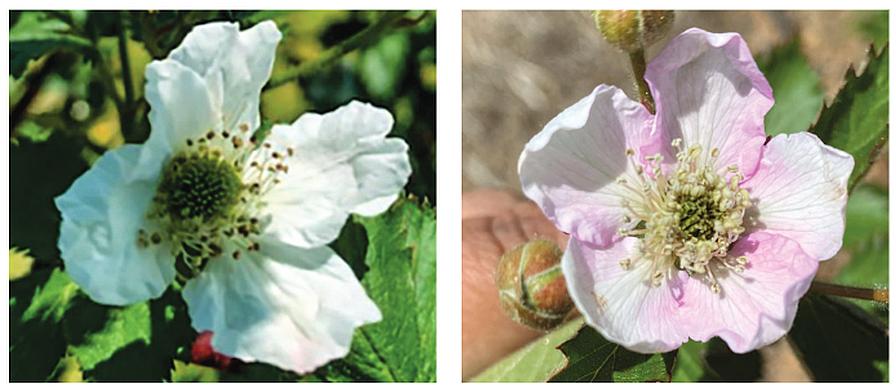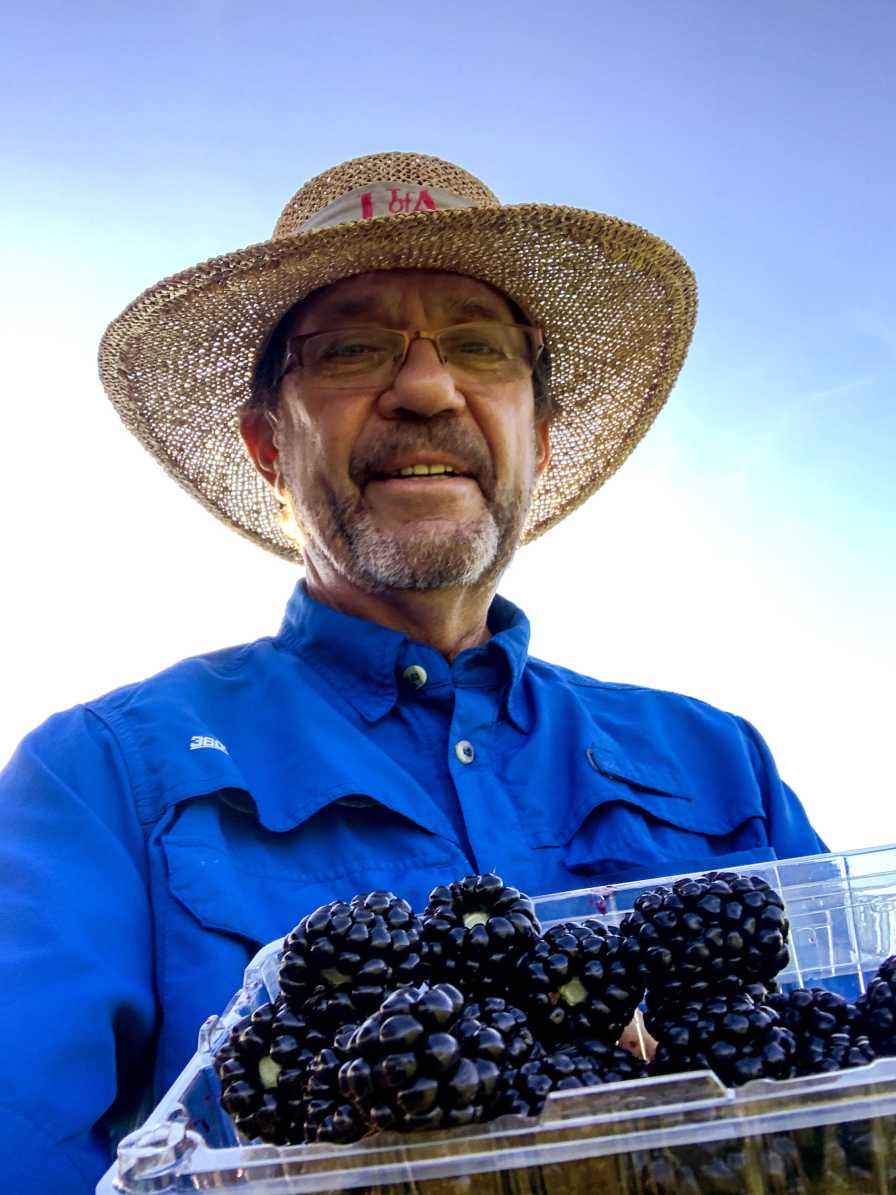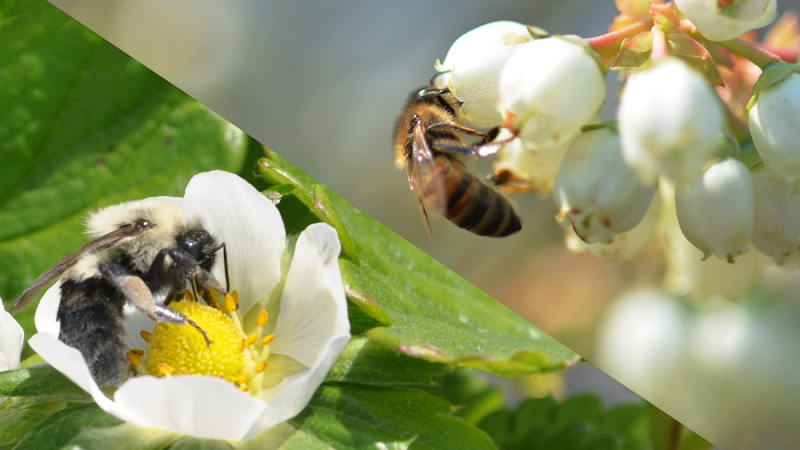Why It’s Been an Unusual Growing Year for Blackberries in the South
Back in the 1980s and early 1990s, it seems there were many more occurrences of mid-winter and spring freeze events damaging fruit crops in the Eastern and Southern U.S. Much of my early research career in Arkansas was focused on cold damage to buds, canes, and flowers on an assortment of fruits, particularly blackberries and blueberries. Since I worked in breeding, finding genetic solutions to avoid or survive cold damage got a lot of my attention. As time moved on to the later 1990s and 2000s, generally the severe freeze events became increasingly less frequent.
The year 2021 provided two extremes not previously experienced in my 40-plus-year career in berry research in Arkansas.
First, on Feb. 16, a never-seen-before low of -15°F was experienced at the University of Arkansas Fruit Research Station, Clarksville, AR. This freeze was 10 degrees colder than previously recorded in my career conducting research at this site.
Then, a late-spring frost (29°F) during early blackberry bloom occurred April 21, six days after the “frost-free” date at this location. These additive events were devastating to blackberries and other crops in the Arkansas research program.
FEBRUARY FREEZE IMPACT
I first thought the -15°F would likely kill many of the blackberry canes to the ground, as I often say that 10°F usually results in some cane damage, and lows of 0°F can kill canes to the ground. I was very surprised when I examined a broad range of blackberry varieties and breeding selections on April 15 and saw very limited damage to canes and emerging buds. I was pleased to see that overall, the hardiness of our blackberry material was greater than I had long understood. I am not sure why more damage was not seen, but the plants were fully dormant in mid-February.

Cold damage on blackberries can present differently. Blackberry bloom not damaged by cold (left) versus one killed by frost (right).
Photos by Sherri Sanders, Lizzy Herrera, and Sarah Cato
I hypothesize that the damage was not worse due to the plants having retained their mid-winter hardiness. In the South, mid-winter damage to blackberries and other crops is often due to fluctuating temperatures resulting in hardiness loss. For the week prior to the -15°F freeze event, six of seven days had daytime temperatures in the 30s or below, with night temperatures from mid 20s to teens. This likely prepared the blackberries for this unusual event. These devastating temperatures were largely confined to the central region of the country and did not extend to North Carolina or Georgia, two major production states for commercial blackberries.
APRIL FREEZE IMPACT
The April freeze occurred when blackberries were in early bloom in Arkansas and likewise the same stage of development in North Carolina. Early blooming varieties, such as ‘Natchez’ and ‘Osage’ experienced severe crop damage. ‘Ouachita’, which blooms a few days later, escaped major crop loss in Arkansas. However, the aforementioned varieties all had major damage in North Carolina due to lower temperatures than experienced at Clarksville, AR, where flowers and developing bud damage were severe.
As it turned out, for my blackberry breeding research year, the spring frost was much more damaging overall to program progress compared to the February freeze.
Growers in most of Arkansas were able to harvest partial to full crops, as temperatures were not as low as Clarksville in central and southern parts of the state. North Carolina was not as fortunate. I was thankful to learn more about potential hardiness levels of blackberries but disappointed to not be able to evaluate many new breeding selections for variety release potential. It is always very disappointing to hear of crop loss from growers.
Southern Georgia is a major commercial blackberry production region, and damaging freezes are rare there. A more troublesome issue has been adequate winter chilling, resulting in reduced and uneven bud break. Georgia experienced more chilling in the winter of 2020-2021 than in many years, resulting in likely the largest crop ever for blackberries.
The interaction of many factors in 2021 resulted in an unusual year for blackberry growers for the commercial shipping market in the South. Many were disappointed, and for different reasons. I learned a little about winter hardiness potential for blackberries, but it was a costly experience all the same.
Thankfully in farming, as in research, there is always next year. Let the berry good times roll!










